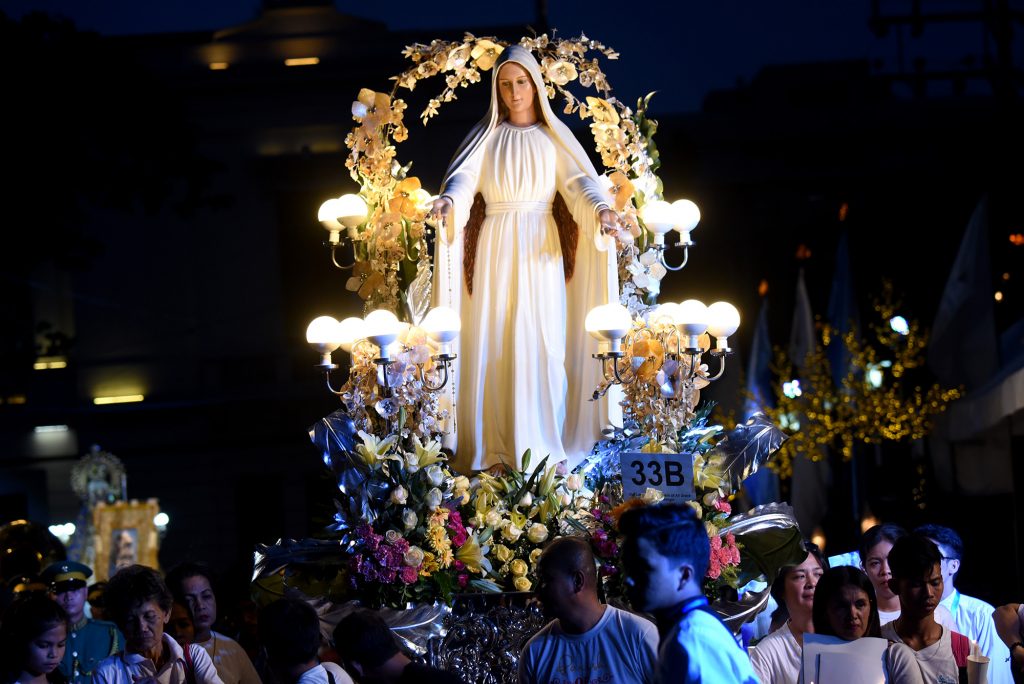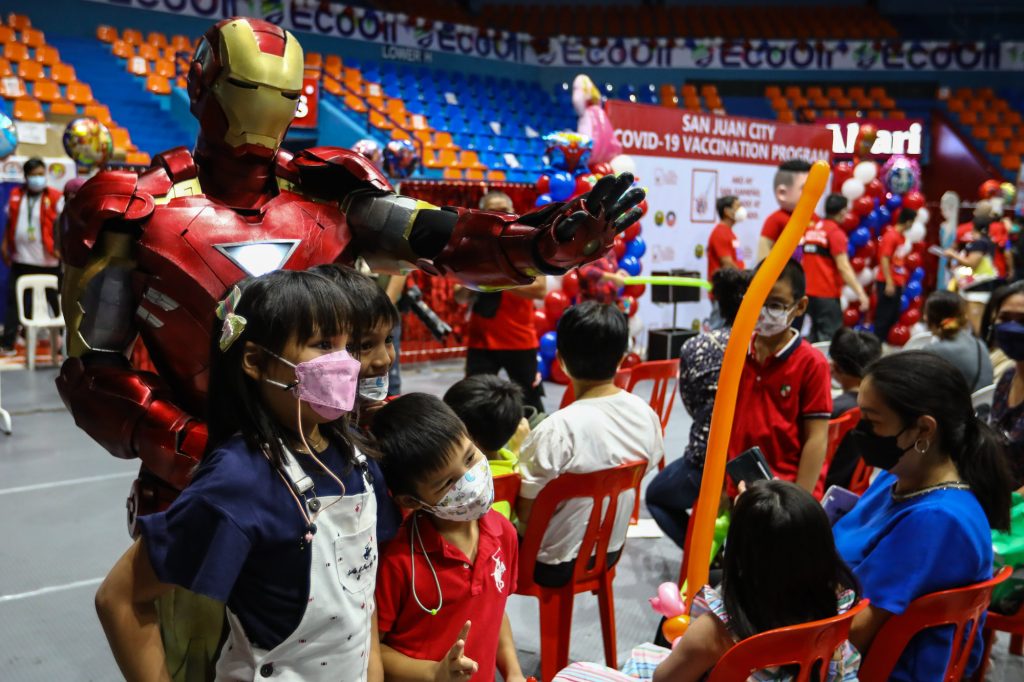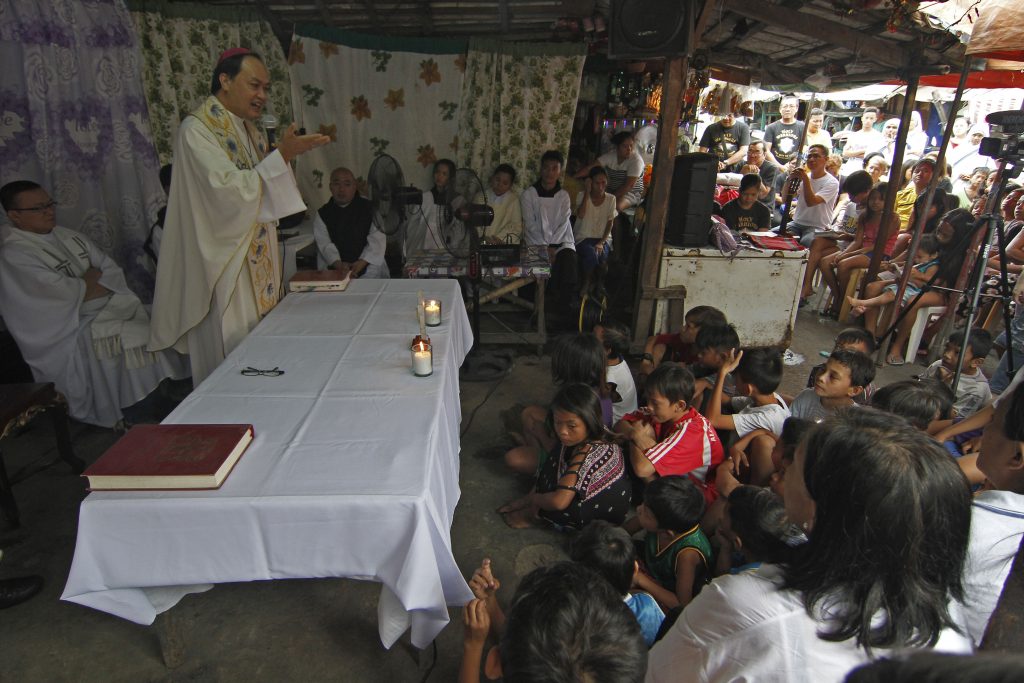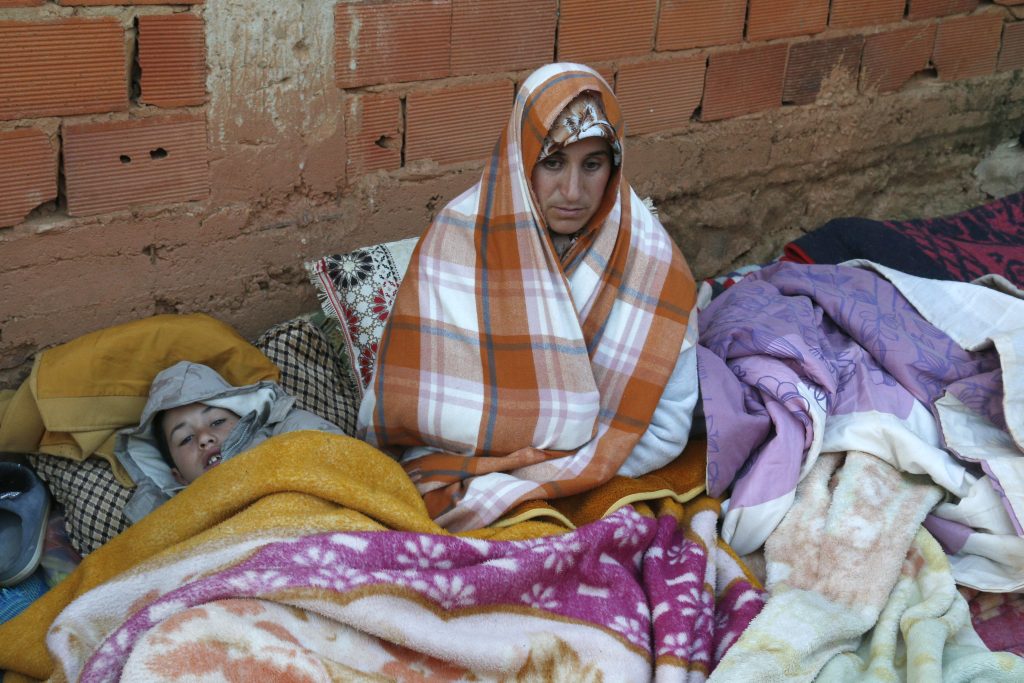
On September 8, the Church commemorates the birthday of the Blessed Mother.
I wonder when it was that we started getting used to the practice of preparing birthday cakes for birthday celebrators, with candles on top of the cake. This western practice is definitely not Filipino but most of us have gotten used to it.
First, the candles are lighted up, then the guests start singing the birthday song, then the celebrator is told to take a breath, pause and make a wish, then he blows off the candles, preferably with one breath.
On one of my past birthday celebrations, I remember, when I was told to blow off the lighted candles on top of the cake, I held back and hesitated. Inside me, I found myself asking, what is the meaning of this strange practice? Why is it that on the day itself that we are supposed to be celebrating life, we blow off lighted candles as if to remind ourselves of our own death? Is this what it is supposed to signify—that what matters is that before your life gets blown off, you make a wish and do what it takes to make your wish come true?
Someone asked me if we are really sure that Mama Mary’s birthday is on Sept. 8. I said, No, we are not. What we celebrate and give importance to is the fact itself that she was born. That she is not a fictional character but a real human being like you and me, but with a special mission. What mission? TO FULFILL GOD’S WILL, TO PUT AN END TO THE CURSE OF DEATH WHICH, THE BIBLE SAYS, IS A CONSEQUENCE OF SIN.
In chapter 3 of the book of Genesis, the writer tells us that even the pain of childbearing is part of the curse that came upon Adam and Eve and also a consequence of sin. Come to think of it, we actually experience our first death the moment we are born, don’t we? Psychologists tell us that our birth was our first traumatic experience.
I know that we often think of the trauma of the mother at the moment of birthing, but we forget about the greater trauma of the child who is born. And we were all totally clueless about it when we went through our own birthing process. Perhaps that is why most people have an inborn separation anxiety. Because life for us begins with the painful experience of being ejected from the womb, of being separated or detached from the umbilical cord that kept us connected to our mother’s womb.
Our life in the womb had to come to an end so that our life in this world could begin. This painful experience must be the reason why our first greeting to the world was a cry the moment we were born—in reaction to our first experience of pain. It is the start of a life that is fraught with suffering and tears. As soon as a child is born, he is, as it were, already preparing to die.
In our Marian prayer, HAIL HOLY QUEEN, we say to the Blessed Mother, “To you do we cry poor banished children of Eve, to you do we send up our sighs, mourning and weeping in this valley of tears.” It is a prayer that reminds us of the curse of sin on all the children of Adam and Eve: our common experiences of pain, suffering and death.
What we celebrate today is the beginning of the end of this curse on Adam and Eve. We celebrate a different kind of birthday—the birth of the Immaculate One, a birthing that is not a consequence of sin. She is the woman already foretold in Genesis who will triumph, an intelligent woman who will no longer be deceived by the serpent. She it is who will step her foot on the head of the treacherous and deceptive enemy. She will put an end to the evil spell brought about by sin.
Christianity began celebrating the nativity of Mary in the year the Council of Ephesus declared Mary to be THE MOTHER OF GOD. We celebrate the moment of her birth because God has chosen her to be the new TABERNACLE, the ark of the new covenant. In her womb, in the one person of her son, humanity and divinity will become united, and never again be ever separated from each other. God will become human so that humankind can truly become the image and likeness of God. God humbles himself so that humankind can be lifted up. God suffers and dies so that humankind can be redeemed from sin and gain eternal life.
On the birthday of our Blessed Mother, if we must light up candles, perhaps, instead of blowing them off we can let them continue to burn and give light until they burn out. On the birthday of Mama Mary, I have a feeling that her only wish is for us to learn to wish like her. It is in this that our humanity is often tested—in the kind of things we desire, the things we wish for in life.
In today’s Gospel, Joseph is introduced to us as a typical man with very simple wishes for himself: a good wife, a healthy child, a simple family living in a simple home. When he discovered that the woman he was marrying was already with child, his world probably crashed, his wish had turned into what seemed to him like a nightmare. Thank God, he did not decide on impulse. He slept over it and gave the angel the chance to explain its purpose to him. No, this was not a nightmare; it was a fulfillment of God’s dream for the world and for all humankind—if only Joseph could wish it too. And so when he woke up, he had already made up his mind to put aside his wishes for himself and embraces God’s wishes as his own.
It was basically what Mary herself did when she said yes to the mission entrusted to her by God: to carry in her womb the Son of God, the Emmanuel, God’s abiding presence with us, through whom humankind will never again be separated from God.
I wonder if God is allowing us to go through this pandemic to give us the opportunity to learn to celebrate our own birthdays rightly? If we take it for granted that our faith is about being the adoptive brothers and sisters of the Son of God, then we are also Mary’s adopted children. Like her, and like St. Joseph, may we learn to make our wishes well. May we aspire, not only to bring to a realization our own dreams for ourselves, but most of all God’s dreams for the world. Remember St. Paul who sais, “We neither live nor die only for ourselves…” The curse of sin will never be broken until and unless we have learned to live committed lives, unless we learn to take responsibility for each other as members of God’s family.
This is a homily delivered by Bishop Pablo Virgilio David of Kalookan on Sept. 8, 2020, Nativity of the Blessed Mother.
Source: Licas Philippines






0 Comments